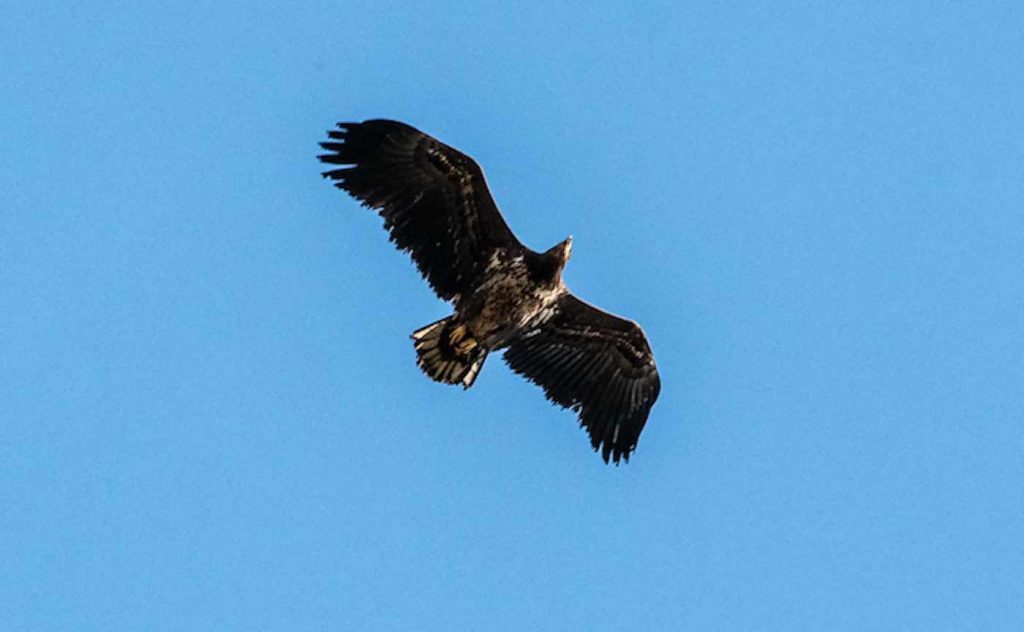Eagles had been nearly hunted to extinction throughout England, Ireland, Scotland, and Wales—but researchers are saying they are now making a triumphant return.
In Ireland’s majestic Glenveagh National Park, golden eagles had disappeared until 2001 when—with the help of the Golden Eagle Trust—birds collected from eyries in Scotland were released into the park, which now boasts a stable population of the majestic birds.
In England, white-tailed eagles had become extinct on the coasts and cliffs of Great Britain. Also known as sea eagles, they are one of the largest eagle species on Earth.
Now, 240 years after the last sighting, a mature white-tailed eagle was confirmed soaring in the wild high over the North York Moors. This is the direct result of several eaglets that were released onto the cliff sides on the Isle of Wight.
RELATED: After 13 Years of Social Distancing, Giant Pandas Finally Mate During Peaceful COVID-19 Zoo Closures
Also collected under a Scottish National Heritage license from the same populations that Glenveagh drew from, the sea eagle project is part of a 5-year strategy managed by the Roy Dennis Wildlife Foundation and Forestry England to bring eagles back.
A team of experts and dedicated volunteers insured the birds were happy and healthy all the way to adulthood when they were released back along the wilds of the south coast, where the team has worked to provide feeding stations that would encourage the majestic birds to make that area home, rather than journey into human civilization and risk the danger of being struck by a windmill, glass building, or some other hazard.

Roy Dennis, the man behind the plan said:
“I have spent much of my life working on the reintroduction of these amazing birds and so watching them take to the skies of the Isle of Wight has been a truly special moment. Establishing a population of white-tailed eagles in the south of England will link and support emerging populations of these birds in the Netherlands, France and Ireland, with the aim of restoring the species to the southern half of Europe. The team is pleased that the project fulfills one of the specific aims of the Government’s 25 year Environment Plan.”
CHECK OUT: Watch the Thundering Return of Bighorn Sheep to Nevada Land They Haven’t Roamed for 100 Years
Due to its central position, the Isle of Wight is the perfect habitat for these birds’ reintroduction into the English coastline, as they have ample opportunity to spread out along for tens miles of coastland both east and west. The cliffs are secluded and predator-free environments for chicks to grow up in, and the surrounding sea provides ample sources of food, like grey mullet.
On the Roy Dennis Wildlife Foundation website, Roy blogs semi-regularly about the wanderings of the eagles around the country, tracking them via radio-transmitters on their legs. After a sedentary winter, one of the eagles flew from Oxfordshire to North York Moors National Park, a distance of 200 miles in 15 days.
Set the Eagles Free By Sharing It With Your Friends On Social Media…




















